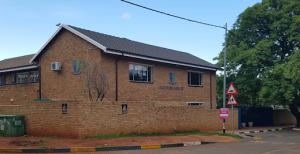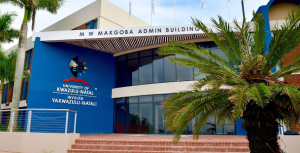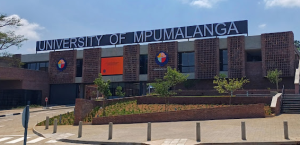The Essentials
Type of Institution: University
Fees per Year: R15 000.00 – R120 000.00
Address: 1 Jan Smuts Avenue, Braamfontein 2000, Johannesburg, South Africa
Phone Number: +27 (0)11 717 1000
Chancellor: Judy Dlamini
Vice Chancellor: Zeblon Vilakazi
Number of students: 40 000+
Website: https://www.wits.ac.za/
Email: ask.wits@wits.ac.za
Table Of Contents
- Overview
- Contact Details
- Address
- Location
- School Fees
- Courses & Programs
- Vacancies and Entry Requirements
- Logo
- Notable Alumni
- Pros and Cons
- Author’s Review
Overview
The University of the Witwatersrand (commonly referred to as Wits University) is one of the most prestigious and research-intensive universities in South Africa. Located in Johannesburg, it has a rich history of academic excellence, social justice, and activism, with a reputation for being one of the leading institutions on the African continent and internationally.
General
Location: Johannesburg, Gauteng, South Africa
Founded: 1922 (with roots tracing back to 1896 as the South African School of Mines)
Language of Instruction: English
Student Population: Over 40,000 students, including a significant number of international students from across Africa and the world
Campus: Wits University has five campuses in Johannesburg, with the main ones being the East Campus and West Campus. The university’s proximity to the urban center of Johannesburg makes it a hub of innovation and opportunity, connecting students to industries, research institutions, and culture.
Research and Innovation
Wits University is renowned for its high research output and innovative contributions to various fields. It ranks consistently as one of the top universities in Africa and globally.
The university has made notable contributions in areas like health sciences, mining, engineering, social sciences, and law.
Wits is known for its research into HIV/AIDS, paleontology, and medical sciences. It is home to the Wits Reproductive Health and HIV Institute (WRHI) and the Wits Donald Gordon Medical Centre.
Rankings
Wits University consistently ranks among the top universities in South Africa and Africa.
It is often placed in the top 500 globally in major world university rankings, excelling particularly in research impact and academic reputation.
Campus Life and Student Experience
Student Life: Wits has a vibrant campus life, with a wide range of student societies, clubs, and organizations catering to diverse interests. This includes cultural, political, social, and academic groups.
Accommodation: The university provides both on-campus and off-campus accommodation for students, with several residences available.
Extracurricular Activities: There are numerous opportunities for students to get involved in sports, the arts, community service, and entrepreneurship. The university has a rich sporting tradition, especially in sports like rugby, soccer, and cricket.
Cultural Life: Wits is home to Wits Theatre, Wits Art Museum (WAM), and the Origins Centre, which showcases South Africa’s deep history and heritage. Johannesburg’s cultural and commercial landscape is also easily accessible to students.
Research Institutes and Centers
Wits is home to numerous research institutes and centers focused on areas such as:
HIV/AIDS research through the Wits Reproductive Health and HIV Institute (WRHI).
Human evolution and paleoanthropology through the Institute for Human Evolution.
Social justice and policy research through the Wits School of Governance.
Commitment to Social Justice
Wits has a long history of political activism and social justice. During the apartheid era, it was one of the few universities to oppose the apartheid regime and promote non-racialism.
Today, Wits continues to focus on equity, inclusivity, and transforming South African society through education and research.
International Collaborations
Wits has numerous collaborations with international universities and research institutions, fostering student exchange programs, research partnerships, and joint degrees. The university is a member of several global university networks, including the Association of Commonwealth Universities (ACU) and the Worldwide Universities Network (WUN).
WITS University Contact Details
You can contact University of the Witwatersrand via their landline, email or you can visit their website for further contact details.
Phone Number: +27 (0)11 717 1000
Website: https://www.wits.ac.za/
Email: ask.wits@wits.ac.za
WITS University Address
1 Jan Smuts Avenue, Braamfontein 2000, Johannesburg, South Africa
WITS University Location
University of the Witwatersrand is situated in the famous city node called Braamfontein in the city of Johannesburg under the Gauteng province of South Africa 1 Jan Smuts Avenue.
WITS University Fees
University of the Witwatersrand’s fees is currently standing at R15 000.00 – R120 000.00 per year depending on the program you are studying and the level of degree you are studying. Please contact the institution or visit them to get the latest fees structure as it can change at any time.
WITS University Courses & Programs
The University of the Witwatersrand (Wits University) offers a wide range of undergraduate, postgraduate, and specialized programs across its five faculties.
Faculty of Commerce, Law, and Management (CLM)
Undergraduate Programs:
Bachelor of Commerce (BCom): General, specializing in:
Accounting
Economics
Finance
Information Systems
Human Resources
Marketing
Law (BCom Law)
Bachelor of Accounting Science (BAccSci)
Bachelor of Economic Science (BEconSci)
Postgraduate Programs:
Postgraduate Diploma in Accountancy (PGDA)
Master of Commerce (MCom)
Finance
Economics
Information Systems
Master of Business Administration (MBA) (through Wits Business School)
Master of Management (MM): Specializations in:
Business and Executive Coaching
Strategic Marketing
Finance and Investment
Public Policy
Innovation and Entrepreneurship
Master of Law (LLM):
Corporate Law
Labor Law
Commercial and Business Law
International Law
Doctor of Philosophy (PhD) in various management, law, and commerce disciplines
Faculty of Engineering and the Built Environment (FEBE)
Undergraduate Programs:
Bachelor of Science in Engineering (BSc Eng):
Aeronautical Engineering
Civil Engineering
Chemical Engineering
Electrical Engineering
Mechanical Engineering
Industrial Engineering
Mining Engineering
Metallurgy and Materials Engineering
Bachelor of Architecture (BArch)
Bachelor of Science in Construction Studies (BSc Construction Studies)
Bachelor of Science in Urban and Regional Planning (BSc Planning)
Postgraduate Programs:
Master of Science in Engineering (MSc Eng) in various disciplines
Master of Urban and Regional Planning (MURP)
Master of Architecture (MArch)
Master of Construction Management
Master of Project Management
PhD in Engineering and Built Environment-related fields
Faculty of Health Sciences
Undergraduate Programs:
Bachelor of Medicine and Bachelor of Surgery (MBChB)
Bachelor of Health Sciences (BHSc) in:
Biomedical Sciences
Forensic Sciences
Pharmacology
Human Genetics
Health Systems Sciences
Bachelor of Science in Occupational Therapy (BSc OT)
Bachelor of Science in Physiotherapy (BSc Physio)
Bachelor of Dental Science (BDS)
Bachelor of Nursing (BNurs)
Postgraduate Programs:
Master of Medicine (MMed) in various specialties (e.g., Surgery, Internal Medicine, Psychiatry, etc.)
Master of Public Health (MPH)
Master of Science in Medicine (MSc Med)
Anatomy
Physiology
Pharmacology
Neuroscience
Reproductive Health
Master of Dentistry (MDent)
Master of Nursing (MNurs)
PhD in Health Sciences (various research specializations)
Faculty of Humanities
Undergraduate Programs:
Bachelor of Arts (BA): General and specialized degrees in:
English
Philosophy
Political Studies
Sociology
History
Anthropology
International Relations
Psychology
Media Studies
African Studies
Languages (French, Spanish, German, etc.)
Drama and Film Studies
Linguistics
Fine Arts (BA Fine Arts)
Bachelor of Education (BEd):
Primary and Secondary education
Bachelor of Social Work (BSW)
Postgraduate Programs:
Honours Programs in a wide range of humanities disciplines (e.g., History, Sociology, Psychology, etc.)
Master of Arts (MA)
Anthropology
Drama and Film Studies
International Relations
Journalism and Media Studies
Development Studies
Political Studies
Psychology
Master of Social Work (MSW)
Master of Education (MEd)
PhD in Humanities disciplines
Faculty of Science
Undergraduate Programs:
Bachelor of Science (BSc):
Biological Sciences
Mathematical Sciences
Computer Science
Chemistry
Physics
Earth Sciences (Geology)
Environmental Sciences
Astronomy and Astrophysics
Biochemistry
Zoology
Microbiology
Genetics
Mathematical Statistics
Archaeology
Postgraduate Programs:
Honours Programs in various sciences (e.g., Physics, Chemistry, Computer Science, etc.)
Master of Science (MSc):
Biological Sciences
Environmental Sciences
Chemistry
Physics
Astronomy
Geology
Applied Mathematics
Data Science
PhD in Science disciplines
Wits Business School (WBS)
Postgraduate Programs:
Master of Business Administration (MBA)
Postgraduate Diploma in Business Administration (PDBA)
Master of Management (MM):
Business and Executive Coaching
Strategic Marketing
Finance and Investment
Innovation and Entrepreneurship
Public Policy
Digital Business
PhD in Business Sciences
Wits School of Governance (WSG)
Postgraduate Programs:
Postgraduate Diploma in Public and Development Management (PDM)
Master of Management in Public Policy (MMPP)
Master of Management in Governance and Public Leadership
PhD in Public and Development Management
Specialized and Short Courses
Wits University also offers a variety of short courses and certification programs in areas like management, entrepreneurship, information systems, and social justice, many of which are offered through the Wits Business School and Wits Plus (Part-Time Studies).
WITS University Vacancies and Entry Requirements
The University of the Witwatersrand (Wits University) offers a range of vacancies (open spots in programs) across its undergraduate and postgraduate courses. Entry into these programs depends on academic performance, specific subject requirements, and other criteria like portfolio submissions for creative courses
Vacancies
Undergraduate Programs:
Limited Availability: Some programs, such as Medicine, Engineering, and Law, have limited spaces and are highly competitive.
Open Vacancies: Wits often updates its vacancies depending on the demand and student intake for the academic year. Spaces in programs may close early when capacity is reached.
Postgraduate Programs:
Vacancies in postgraduate programs vary depending on the faculty, the field of study, and supervisor availability for research-based degrees.
Entry Requirements
Undergraduate Entry Requirements:
To be considered for admission into undergraduate programs, applicants must meet the following general requirements:
National Senior Certificate (NSC) or equivalent: Students must have a NSC or an equivalent school-leaving certificate for international students.
Minimum APS (Admission Point Score): Wits uses an APS system where points are calculated based on the student’s final Grade 12 results. The APS requirements differ depending on the faculty and program.
General APS Score Requirements:
BCom, BA, BSc: Typically require an APS of 30-36 points.
BEng (Engineering): Requires an APS of 40+ points. Students also need Mathematics and Physical Sciences (minimum of 70%).
MBChB (Medicine): APS of 42+, with Life Sciences, Physical Sciences, and Mathematics required. These are highly competitive, and students generally need 80%+ in these subjects.
BSc (Health Sciences): Requires a high APS (36-40), with Maths and Science subjects.
LLB (Law): An APS of around 38 with English and Mathematics required.
Creative Arts (Architecture, Fine Arts): Along with an APS, students may need to submit a portfolio (for architecture or fine arts).
Specific Subject Requirements:
Mathematics and Science: For courses like Engineering, Medicine, Commerce, and Science, Mathematics and Physical Sciences are mandatory.
Languages: A minimum of 50-60% in English is required for most programs, as Wits is an English-medium university.
Postgraduate Entry Requirements:
Honours Programs:
A relevant bachelor’s degree with a minimum average of 60% in the final year of study.
Master’s Programs:
A relevant honours degree or equivalent qualification, generally with a 65-70% average.
For research-based master’s, applicants must submit a research proposal and secure a supervisor.
For professional master’s like the MBA, additional requirements like work experience (3-5 years) and a GMAT score may be needed.
Doctoral Programs (PhD):
A relevant master’s degree is required.
Applicants must submit a research proposal and demonstrate potential for original research.
International Students
Equivalency Requirements: International students must provide an equivalent qualification (e.g., A-Levels, IB diploma).
English Proficiency: Students whose prior education was not in English may need to submit an IELTS or TOEFL score to prove their proficiency in English.
Other Considerations for Admission:
- National Benchmark Test (NBT):
Some faculties require students to write the National Benchmark Test (NBT) to assess their readiness for university study. This is particularly relevant for competitive programs like Medicine, Commerce, and Engineering.
- Interviews/Assessments:
For specific programs such as Medicine, Law, and Business, applicants may be required to attend an interview or complete additional assessments.
- Portfolio Submissions and Auditions:
Creative programs (e.g., Architecture, Fine Arts, Drama) require students to submit a portfolio or participate in an audition as part of the selection process.
WITS University Logo
Below is the logo of University of the Witwatersrand with excellent quality and it is available to download in PNG (transparent file) JPEG and PDF.
WITS University Logo
WITS University Notable Alumni
Nelson Mandela – South Africa’s first democratically elected president, Nobel Peace Prize winner
Patrice Motsepe – South African mining magnate; according to Forbes magazine, worth more than R17-billion after adding a further R7-billion to his net worth in 2009
Sir Ernest Oppenheimer – diamond and gold mining entrepreneur; financier; philanthropist; controlled De Beers; founded the Anglo American Corporation of South Africa
Gary Barber – American film producer of South African descent; chairman and CEO of Metro-Goldwyn-Mayer since 2010; co-founder of Spyglass Entertainment
Adrian Gore – CEO of Discovery Holdings Ltd; Chairman of Destiny Health Inc. in the USA and Prudential Health Limited in the UK
Gary Barber – Chairman and CEO of Metro-Goldwyn-Mayer
Thuso Mbedu – actress
Gwede Mantashe – politician; ANC secretary general and chairperson of the South African Communist Party
Helen Zille – leader of the Democratic Alliance
Mmusi Maimane – politician and former DA leader
Natan Gamedze – Swazi Prince, Supreme Court Translator and Orthodox rabbi
Thuli Madonsela – Public Protector of South Africa
Winnie Madikizela-Mandela – Political activist during apartheid.
Nandipha Magudumana – medical practitioner and celebrity doctor incarcerated and investigated for aiding a fugitive’s prison escape
Thuli Madonsela – advocate, professor of law, and former Public Protector of South Africa
Johnny Clegg – musician
Gavin Hood – writer, producer and director, directed Tsotsi
Motswedi Modiba – singer-songwriter
WITS University Pros and Cons
Pros
Academic Excellence and Reputation: Wits is one of South Africa’s leading universities, consistently ranked among the top in the country and globally. It is renowned for its high academic standards and research output.
Strong Research Focus: The university has a strong emphasis on research, with numerous research centers and institutes across various disciplines, such as Health Sciences, Engineering, and Social Sciences. It offers extensive research opportunities for undergraduate and postgraduate students.
Diverse Academic Programs: Wits offers a wide range of undergraduate, postgraduate, and doctoral programs across its various faculties, including Commerce, Law, Engineering, and Humanities. Known for its specialized programs and innovative courses.
Strategic Location: Located in Johannesburg, South Africa’s economic hub, Wits benefits from its proximity to a vibrant city with numerous professional, cultural, and social opportunities. Students have access to a dynamic urban environment with a wide range of amenities and activities.
International Collaboration: Wits has strong international connections, with partnerships and exchange programs with universities and institutions around the world, enhancing global exposure and networking opportunities.
Comprehensive Student Support Services: The university provides a range of support services, including academic counseling, career services, mental health support, and student organizations. Active campus life with various clubs, societies, and sports teams.
Modern Facilities: Wits boasts modern facilities, including well-equipped libraries, research labs, and student accommodation. Continued investment in campus infrastructure and resources.
Focus on Social Justice and Transformation: Wits has a strong commitment to social justice, equity, and transformation, reflected in its academic programs and community engagement initiatives.
Cons
High Cost of Living: The cost of living in Johannesburg can be relatively high, which may be challenging for students, particularly those from outside the city or international students.
Competitive Admission: Admission to certain programs, particularly in Medicine, Engineering, and Law, can be highly competitive, requiring high academic performance and strong entry scores.
Accommodation Challenges: Securing on-campus housing can be difficult, and there may be limited availability. Students often need to find off-campus accommodation, which can be expensive and require commuting.
Traffic and Transport Issues: Johannesburg’s traffic congestion can impact commuting times, and public transport options may be limited, making transportation a potential challenge for students.
Occasional Campus Protests: Wits has experienced student protests and unrest related to issues of fees, transformation, and student services, which can affect the academic environment.
Infrastructure Strain: There may be occasional issues with overcrowding in certain facilities, such as lecture halls and libraries, particularly during peak times.
Pressure and Workload: The academic workload can be intense, leading to high levels of stress and pressure among students, especially in competitive programs.
Cultural and Social Dynamics: While Johannesburg is diverse, the cultural dynamics and social issues within the city might impact students’ experiences and integration.
Author's Review
The University of the Witwatersrand (Wits) stands as a prestigious institution known for its academic excellence, research strength, and strategic location in Johannesburg.
With a reputation for high-quality education and a strong focus on research and innovation, Wits offers a comprehensive range of programs across various disciplines, from Medicine and Engineering to Humanities and Commerce.
However, prospective students should be aware of the challenges, including the high cost of living in Johannesburg, competitive admission processes, and accommodation constraints. Additionally, issues related to transportation and occasional campus unrest may impact the student experience.
Despite these challenges, Wits remains a top choice for those seeking a world-class education in a dynamic and internationally connected environment. Its commitment to academic rigor, research excellence, and social justice makes it a compelling option for students aiming to make significant contributions in their fields and society.



